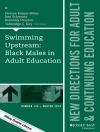Across the world, higher education is witnessing exponential growth in both student participation and types of educational providers. One key phenomenon of this growth is an increase in student diversity: governments are widening access to higher education for students from traditionally underrepresented groups. However, this raises questions about whether this rapid growth may in face compromise academic quality. This book presents case studies of how higher education institutions in diverse countries are maintaining academic excellence while increasing the access and participation of students from historically underrepresented backgrounds. Including case studies spanning four continents, the authors and editors examine whether increasing widening participation positively impacts upon academic quality. This volume will be of interest and value to students and scholars of global higher education, representation and participation in education, and quality in higher education.
Table of Content
Chapter 1. Leadership for institutional change to promote diversity and success; Liz Thomas.- Chapter 2. Vertically Segregated Higher Education and the Life Course: Comparing Patterns over 28 Years; Lesley Andres and Ashley Pullman.- Chapter 3. Supporting Students’ Learning: the power of the student-teacher relationship; Debra Cureton and Phil Gravestock.- Chapter 4. Facilitating the success of students from low SES backgrounds at regional universities through course design, teaching and staff attributes; Marcia Devlin and Jade Mc Kay.- Chapter 5. A Case Study of Using Developmental Education to both Raise Equity and Maintain Standards; Michelle Hodara, Di Xu and Julie Petrokubi.- Chapter 6. Vision 20:20 and Indigenous Health Workforce Development: Institutional strategies and initiatives to attract underrepresented students into elite courses; Elana Curtis, Te Kupenga Hauora Māori.- Chapter 7. Social Inclusion or Social Engineering? The politics and reality of widening accessto medicine in the UK; Kirsty Alexander and Jennifer Cleland.- Chapter 8. University Strategies to Improve the Academic Success of Disadvantaged Students: Three Experiences in Chile; Oscar Espinoza, Noel Mc Ginn and Luis Eduardo González.- Chapter 9. Widening Participation in medicine in the UK; Paul Garrud and Clare Owen.- Chapter 10. Affirmative actions as an instrument to balance access to superior education in Brazil: The quotas policy; Rubens Becak and Luis Felipe Cirino.- Chapter 11. The Conundrum of achieving Quality Higher Education in South Africa; Sadhana Manik and Labby Ramathran.- Chapter 12. Fees regime and widening access in the four UK nations: are no-fees regimes necessarily more socially inclusive?; Sheila Riddell and Elisabet Weedon.- Chapter 13. High status professions, their related degrees and the social construction of ‘quality’.- Erica Southgate, Susan Grimes and Jarrad Cox.- Chapter 14. How can contextualised admissions widen participation?; Stephen Gorard, Vikki Boliver and Nadia Siddiqui.- Chapter 15. Governmental Supports for Students in Turkey: Beneficiary Perspective on the Use of Financial and Social Support in Higher Education; Yasar Kondakci, Kadir Beycioglu, Yusuf Ikbal Oldac, Hanife Hilal Senay.
About the author
Mahsood Shah is the Deputy Dean, Learning and Teaching and Associate Professor with School of Business and Law at Central Queensland University, Australia. In this role, he provides leadership in all aspects of learning and teaching including strategy and governance, policy implementation, course development and reviews, accreditations, maintenance of standards, enhancing the quality of teaching, innovation in the use of learning technologies, and professional development of academic staff. His research expertise includes quality in higher education, student experience, student engagement and retention, widening participation, private higher education, and international education.
Jade Mc Kay is a Research Fellow at Deakin University, Australia. Her research interests encompass inclusive teaching and learning approaches that facilitate the success of non-traditional students.












